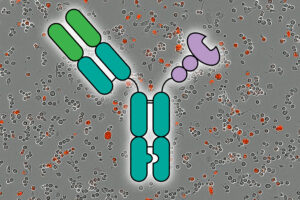
In a compelling call to action, five Deputy Vice-Chancellors have urged Australia to prioritize First Nations Peoples in higher education, as highlighted in a recent article in The Times Education. This plea is part of a broader discourse on urgent public health and educational reforms, including the implementation of key recommendations from the Australian Universities Accord.
The conversation extends beyond education, touching on critical issues such as housing and clean indoor air as fundamental human rights. Concurrently, a new report is advocating for global investment and action against noncommunicable diseases (NCDs), highlighting healthcare disparities in lutruwita/Tasmania, and announcing the World Conference on Health Promotion set to take place in 2028.
Global Focus on Noncommunicable Diseases
On September 25, Heads of State and Government will gather in New York for the 4th United Nations General Assembly High-Level Meeting (HLM4) on the prevention and control of NCDs and the promotion of mental health and wellbeing. This meeting is poised as “the most significant political opportunity of the decade to drive transformative change” with the aim of adopting an ambitious Political Declaration to accelerate global action.
The World Health Organization (WHO) has released a pivotal report titled ‘Saving lives, spending less: the global investment case for noncommunicable diseases’. This document outlines 29 highly effective and affordable measures, known as “best buys,” for countries to prevent and manage major NCDs such as heart disease, diabetes, cancers, and respiratory diseases.
Progress and Challenges
According to WHO, from 2010 to 2019, 82 percent of countries reported reductions in NCD mortality. However, the pace of progress has decelerated significantly in many regions, with some countries witnessing a resurgence in NCD-related deaths. NCDs remain the leading cause of global mortality, while over one billion people live with mental health conditions. The burden is disproportionately high in low- and middle-income countries, where nearly 75 percent of NCD and mental health-related deaths occur, accounting for 32 million lives lost annually.
“Noncommunicable diseases and mental health conditions are silent killers, robbing us of lives and innovation,” said Dr. Tedros Adhanom Ghebreyesus, WHO Director-General. “We have the tools to save lives and reduce suffering. Countries like Denmark, South Korea, and Moldova are leading the way, while others are stalling. Investing in the fight against NCDs isn’t just smart economics—it’s an urgent necessity for thriving societies.”
Barriers to Progress
Despite the availability of cost-effective solutions, governments often face significant opposition from industries whose products contribute to disease. Companies in the tobacco, alcohol, and ultra-processed food sectors frequently attempt to block, weaken, or delay life-saving policies, such as health taxes and marketing restrictions aimed at protecting children.
“It is unacceptable that commercial interests are profiting from increasing deaths and disease,” stated Dr. Etienne Krug, Director of WHO’s Department of Health Determinants, Promotion and Prevention. “Governments must put people before profits and ensure evidence-based policy is not derailed by corporate pressure.”
The WHO is urging leaders, partners, and communities to advocate for concrete actions, including:
- Funding and implementing WHO’s ‘Best Buys’ tailored to national needs
- Taxing tobacco, alcohol, and sugary drinks
- Strengthening primary health care for prevention, early detection, and treatment
- Protecting children from harmful marketing
- Expanding access to essential medicines and technologies
- Securing financing through domestic budgets, health taxes, and targeted aid
- Setting bold targets and tracking progress with strong accountability
- Stopping industry interference in health policy
Australia’s Role in Global Health
The report briefly mentions Australia’s contributions through the Partnerships for a Healthy Region initiative (2023–2028), administered by the Department of Foreign Affairs and Trade. This initiative supports improved health outcomes in South-East Asian and Pacific countries, including a grant of A$ 14.48 million (US$ 9.7 million) over four years to the Elimination Partnership in the Indo-Pacific for Cervical Cancer (EPICC). This funding aims to enhance HPV vaccination programs, expand screening and treatment services, and strengthen health workforce capacity.
As global leaders prepare for the upcoming UN meeting, the international community faces a critical juncture in addressing the pervasive challenges of noncommunicable diseases and mental health. The decisions made and actions taken in the coming months will significantly impact the future of global health and the well-being of millions worldwide.






